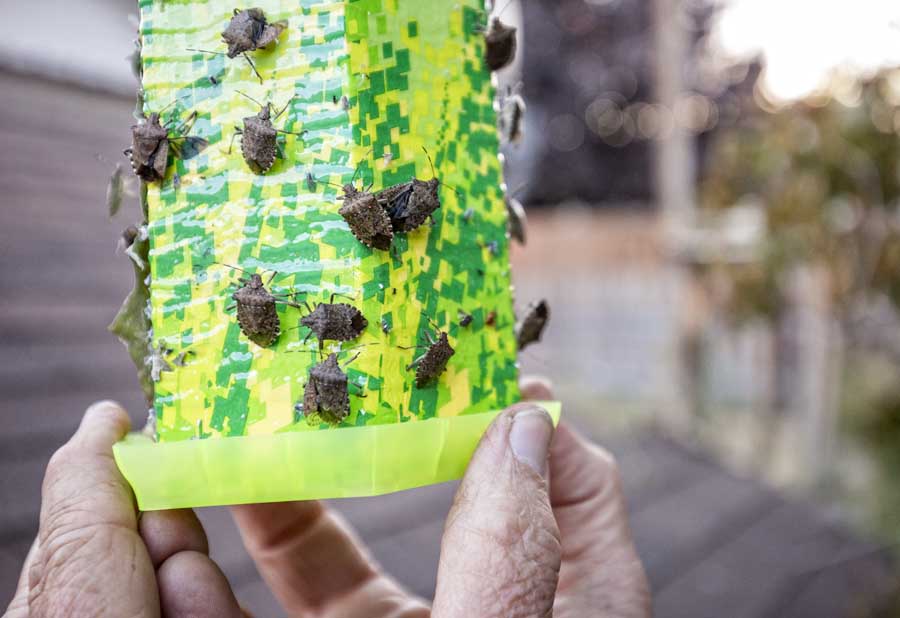
Research entomologist, Peter Landolt holds a sticky wasp trap covered with brown marmorated stink bug in a Yakima, Washington, yard on September 28, 2016. Landolt found success catching BMSB with the wasp trap by adding a commercial pheromone attractant for BMSB. (TJ Mullinax/Good Fruit Grower)
Researchers from Washington State University, the Washington State Department of Agriculture and the U.S. Department of Agriculture-Agricultural Research and Extension continue to monitor the expanding distribution of the invasive brown marmorated stink bug (BMSB).
By the end of 2015, BMSB was found in sixteen Washington counties, primarily along the interstate corridors. In early 2016, BMSB was confirmed in another three counties as the range of this stink bug continues to expand.
There are reports of BMSB causing significant crop damage to tree fruit and vegetable crops in the Atlantic Seaboard States, but no confirmed reports of BMSB damage to crops in Washington.
Nevertheless, Pacific Northwest researchers (similar efforts are underway in Oregon) are concerned that the abundance of BMSB may continue to build and hopeful that fruit producers can adopt and implement management strategies before crop damage is confirmed in the region.
There have been a number of research and commercial trap designs that use stink bug pheromones to lure stink bugs into the traps. Peter Landolt, Ph.D., (USDA-ARS, Wapato) and WSU collaborators have experimented with numerous combinations of these traps with the goal of finding the best means of monitoring BMSB.
In one trial, the Rescue Wasp Trapstick baited with BMSB lures produced by Sterling International captured more BMSB in one trap at one Yakima, Washington, location in 24 hours than all BMSB captured in Yakima County in 2015 and 2016. Over the next month, we will continue to monitor BMSB and confirm the efficacy of this potential new trap design as a monitoring tool.
In 2017, monitoring of BMSB will continue in Washington and Oregon.
Any growers with an interest in monitoring BMSB in their regions or to confirm stink bugs as BMSB are encouraged to contact Michael Bush, WSU Yakima County Extension at 2403 S. 18th St., Suite 100 in Union Gap, Washington, 98903, or their local university extension office.
– by Michael Bush, Ph.D., is a Washington State University Extension entomologist. Peter Landolt, Ph.D., is a research entomologist with the U.S. Department of Agriculture’s Agricultural Research Service in Wapato, Washington.






Leave A Comment